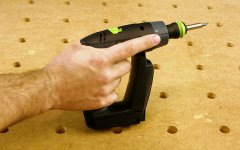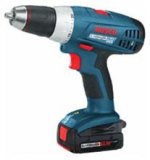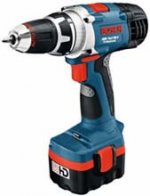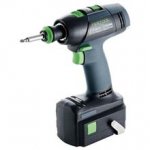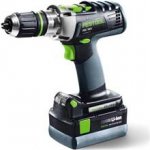Walk On Wood
Member
- Joined
- Oct 2, 2013
- Messages
- 277
Im looking for someone to clarify the differences between the various drills.
It seems too me like there are 3 basic drills:
1) the cxs- it's small and light
2) c series
3) t series, one of which is the hybrid impact
Beyond the difference in shape, are there other differences between the c and t series? What are each of them best at?
Other than the battery getting bigger, are there difference between the 10.8, 14.4, and 18 volt? Does the drill have more power or battery last longer as the battery gets bigger? Any other differences?
I currently use Milwaukee 12v, i have the impact and the drill/driver. I also have a corded Milwaukee for stuff the little guys can't handle.
I primarily install/finish hardwood floors, so i frequently drill 3/4"-1" holes to clear conduit/pipes in the floor. I also drive a lot of screws from 1 1/4"-4" long. At home they get used for everything from installing cabinets to hanging drywall. At my shop they get called on for hole sawing and more driving.
I really like the Ti15 for the impact, but some videos ive watched imply it isn't great at drilling larger holes. It also comes w a systainer with room for another drill which implies to me that it isn't a "one drill does it all".
Anyone have any experience they'd like to share with me to help me decide what to get? Any info is welcome!
It seems too me like there are 3 basic drills:
1) the cxs- it's small and light
2) c series
3) t series, one of which is the hybrid impact
Beyond the difference in shape, are there other differences between the c and t series? What are each of them best at?
Other than the battery getting bigger, are there difference between the 10.8, 14.4, and 18 volt? Does the drill have more power or battery last longer as the battery gets bigger? Any other differences?
I currently use Milwaukee 12v, i have the impact and the drill/driver. I also have a corded Milwaukee for stuff the little guys can't handle.
I primarily install/finish hardwood floors, so i frequently drill 3/4"-1" holes to clear conduit/pipes in the floor. I also drive a lot of screws from 1 1/4"-4" long. At home they get used for everything from installing cabinets to hanging drywall. At my shop they get called on for hole sawing and more driving.
I really like the Ti15 for the impact, but some videos ive watched imply it isn't great at drilling larger holes. It also comes w a systainer with room for another drill which implies to me that it isn't a "one drill does it all".
Anyone have any experience they'd like to share with me to help me decide what to get? Any info is welcome!

